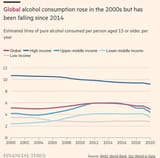>>245429041. The Algorithm Feeds You What Keeps You Hooked
Platforms like Facebook, TikTok, YouTube, and Instagram use AI algorithms that learn what you watch, click, comment on, and even pause to look at.
The goal: maximize “time on platform.”
If you engage with emotional content (especially anger, fear, outrage, or desire), you’ll get more of that.
The algorithm doesn’t care why it works—just that it does.
Example: If you click on a post that makes you angry, you’ll start seeing more posts like it—even if it stresses you out. Anger keeps people scrolling and replying.
2. Variable Rewards (Like a Slot Machine)
Platforms use what psychologists call “variable reinforcement”—unpredictable rewards that hook the brain.
Sometimes your post gets tons of likes. Sometimes none.
You check your notifications, not knowing what you’ll get.
This uncertainty is addictive, like pulling a lever on a slot machine.
Your brain releases dopamine not when you get the reward, but when you anticipate it.
3. Emotionally Charged Content Spreads Faster
Studies show that posts with high emotional intensity, especially negative emotions like outrage or fear, are more likely to go viral.
Social media amplifies this type of content because it generates more engagement.
Platforms know that emotional posts are more “shareable,” even if they’re misleading or polarizing.
Example: News stories or memes that make you say “I can’t believe this!” are engineered to spread fast.
4. Hijacking Your Brain’s Survival Systems
Fear-based content triggers the amygdala, your brain’s threat-detection center.
This keeps you on high alert and more reactive—perfect for endless scrolling or fighting in comment sections.
You may feel informed or righteous, but often you’re just stuck in a dopamine-fueled fight-or-flight loop.
5. Personalized Echo Chambers
Algorithms slowly filter out people and content that challenge your beliefs.
You end up in a filter bubble or echo chamber, seeing only what reinforces your worldview.
This increases us-vs-them thinking and weakens empathy across social lines.
Over time, it can even change your beliefs without you realizing it.
6. Social Comparison and Identity Engineering
Platforms push content that makes you compare yourself—your looks, lifestyle, success.
They also reinforce identity through group cues, hashtags, and outrage triggers.
This can affect self-worth, especially among teens, and reinforce tribal behavior.
Bottom Line: Platforms Optimize for Profit, Not Mental Health
They don’t have to make you happy.
They just have to keep you engaged.
